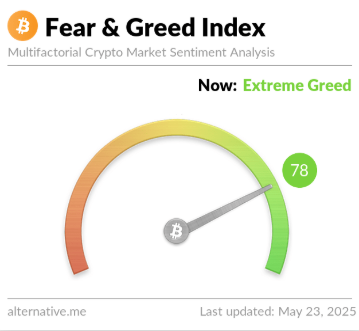Bitcoin (BTC) is stepping into what many observers are calling a new era; one that could fundamentally defy past expectations and reshape its very role within the global financial system.
While skeptics often point to its notorious price volatility, a quieter, more profound revolution is taking place beneath the surface. Key political changes, pivotal regulatory shifts in the U.S., and surging institutional interest are all now aligning to drive Bitcoin towards genuine mainstream adoption. Investors who are only watching the day-to-day price swings might just be missing the bigger picture: Bitcoin is steadily embedding itself into the fabric of the global economy.
As crypto investor James Lavish put it, what happens next for Bitcoin won’t just be another price rally, it could very well be a deep “structural transformation.”
Key Regulatory Green Lights: GAAP, SAB 121 Changes Unlock Bitcoin Adoption
A recent shift in the U.S. administration has seemingly paved the way for major adjustments in how Bitcoin is treated under federal regulations, providing significant tailwinds. One of the most impactful of these changes is the crucial update to GAAP (Generally Accepted Accounting Principles) accounting standards.
Publicly traded companies in the U.S. can now mark Bitcoin holdings to market on their balance sheets, treating it much like other traditional financial assets. This seemingly technical accounting change is a game-changer because it eliminates the previous financial disincentives—like impairment charges without upward revaluation—that made corporate treasurers understandably hesitant to hold Bitcoin. It’s viewed as a key unlock for broader adoption by Fortune 500 firms and other large corporations.
Moreover, the reversal of the controversial SAB 121 rule by the SEC allows banks to hold Bitcoin as an asset. Previously, they had to treat it as a liability. This update significantly reduces compliance friction.
Now, banks can integrate Bitcoin into their offerings without the looming fear of regulatory audits. As a result, more traditional financial players are expected to build Bitcoin-related products and services.
Related: New “Buy-The-Dip” Signal Emerges On Bitcoin’s Chart, Boosts Bullish Momentum
Wall Street Warms Up: Major Banks Now Offer Bitcoin Access
Institutional resistance is fading quickly. Financial giants such as Chase, Citibank, and Wells Fargo are now positioned to offer Bitcoin access to their customers. This is a massive shift from the previous landscape where banks viewed Bitcoin as a competitor. Now, they see it as a profit center. When traditional banks benefit, their narrative around Bitcoin changes from caution to encouragement.
Besides just offering access, banks are preparing to equip their sales staff with tools and training. This will help them guide clients through Bitcoin investments confidently. It’s a smart strategy helping demystify Bitcoin while boosting revenue streams.
The Rise of Self-Custody: Investors Seek Control Amidst Mainstream Push
While institutional interest and bank-led initiatives are making Bitcoin more accessible to the masses, a parallel trend is seeing individual investors increasingly seek direct control and sovereignty over their digital assets. Self-custody solutions, particularly hardware wallets like the Coldcard wallet, are reported to be growing in popularity.
Related: Glassnode Reveals Shocking Drop in Bitcoin Profit-Taking Despite All-Time Highs
Products like Coldcard, designed specifically with Bitcoiners in mind, offer robust security features for individuals who prefer to manage their own private keys. As more people adopt Bitcoin, promoting safe and effective self-custody practices is becoming an essential part of the ecosystem’s maturation. This dual approach—easier institutional access alongside robust self-sovereignty tools—is shaping Bitcoin’s new era.
Disclaimer: The information presented in this article is for informational and educational purposes only. The article does not constitute financial advice or advice of any kind. Coin Edition is not responsible for any losses incurred as a result of the utilization of content, products, or services mentioned. Readers are advised to exercise caution before taking any action related to the company.
